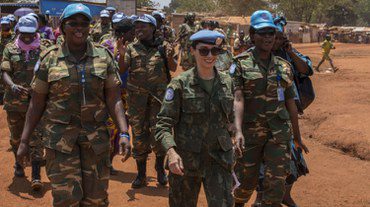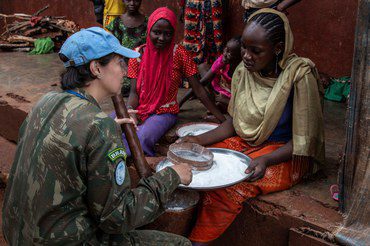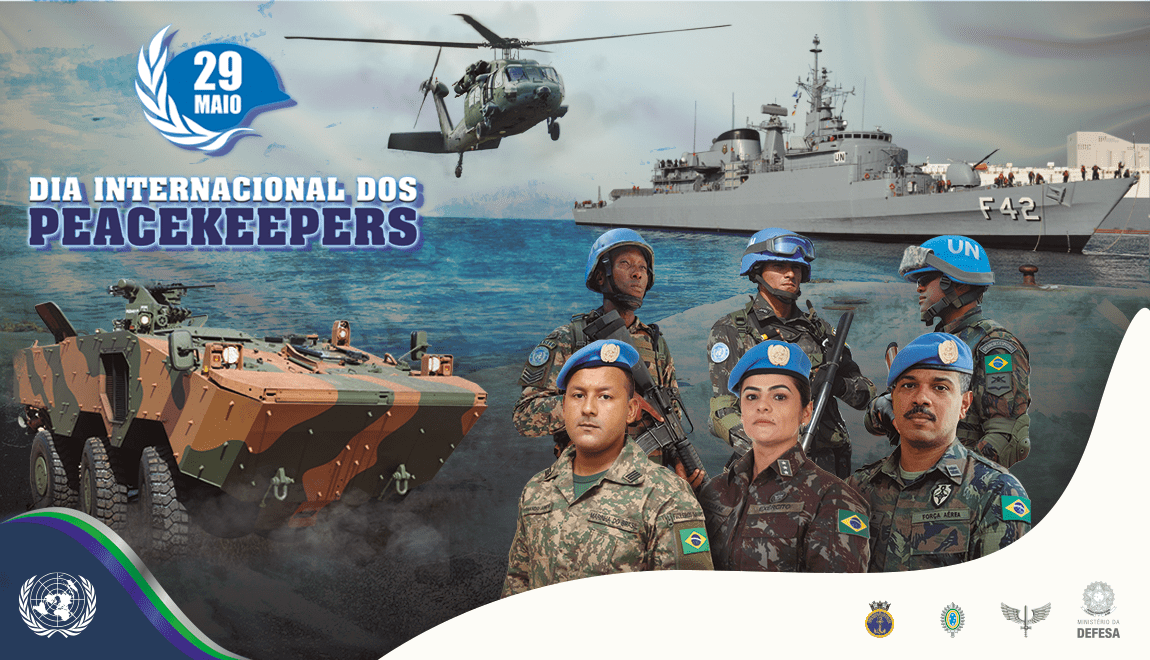Isabela Nóbrega
With the responsibility of reconciling regions in conflict situations, guaranteeing local political stability and keeping the peace, the Brazilian Armed Forces participate in eight of the 12 peacekeeping operations under the aegis of the United Nations (UN) around the world. In addition, the military also integrates three special political missions of the international organization. In 75 years of operation, about 55 thousand Navy, Army and Air Force personnel have been sent abroad to fulfill 50 missions. The action of these men and women, known as Peacekeepers, reinforces Brazil’s commitment to contribute to the promotion of peace and security among nations.
The Deputy Chief of International Operations of the Ministry of Defense, Rear Admiral Stewart da Paixão Gomes, talked about May 29th, Peacekeepers Day. “It is celebrated, worldwide, to honor the men and women who, through their work, have contributed to the purpose of the UN, often with the sacrifice of their own lives. Since then, Brazil has followed a path of great commitment and success in its contribution to the promotion of world peace”, he highlights.
Currently, the Brazilian effort has a staff of 88 military personnel from the Armed Forces and military police, distributed in 10 countries and one specific region, in Africa, Asia and Europe: Abyei Region, Cyprus, Yemen, Lebanon, Mali, Central African Republic, Democratic Republic of Congo, Western Sahara, Somalia, Sudan and South Sudan. In this scenario, Brazil plays an important role in two operations. In the United Nations Mission for the Stabilization of the Federal Republic of Congo, known as Minusco, Brazil has a general officer in the position of Commander of the Military Component. In South Sudan, in the mission known as Unmiss, another general officer holds the position of Chief of Staff.
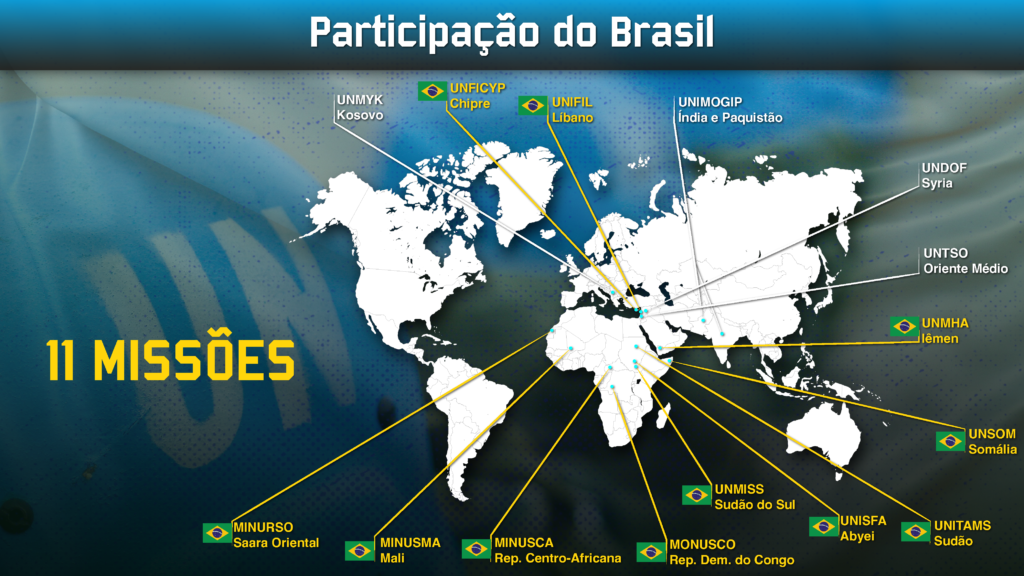
Troop contributions take place in countries ravaged by conflict and humanitarian crises. The activities in the field include cooperation to solve economic, social, cultural, and humanitarian problems, as well as promoting respect for human rights and freedom of peoples, regardless of race, sex, language, or religion. Among the work carried out, it is often important to develop a local judicial system, as well as to train police forces to ensure law and order. In certain cases, the work involves the logistics of rebuilding schools and hospitals. The main objective is to make the transition to a democratic state, with conditions for sustainable progress in the region and guarantees for the protection of citizens.
The action of the military component is not unique. It happens simultaneously with several international agencies, governmental and non-governmental organizations, such as Unesco, Unicef, the Red Cross, World Wide Food, and many others. These are institutions dedicated to guaranteeing human rights, to developing education and culture, to protecting the environment, and to sustainable development, among others. For them to be able to fulfill their humanitarian role, there must be a safe environment and agreement between the parties in conflict, a fundamental role of peacekeepers.
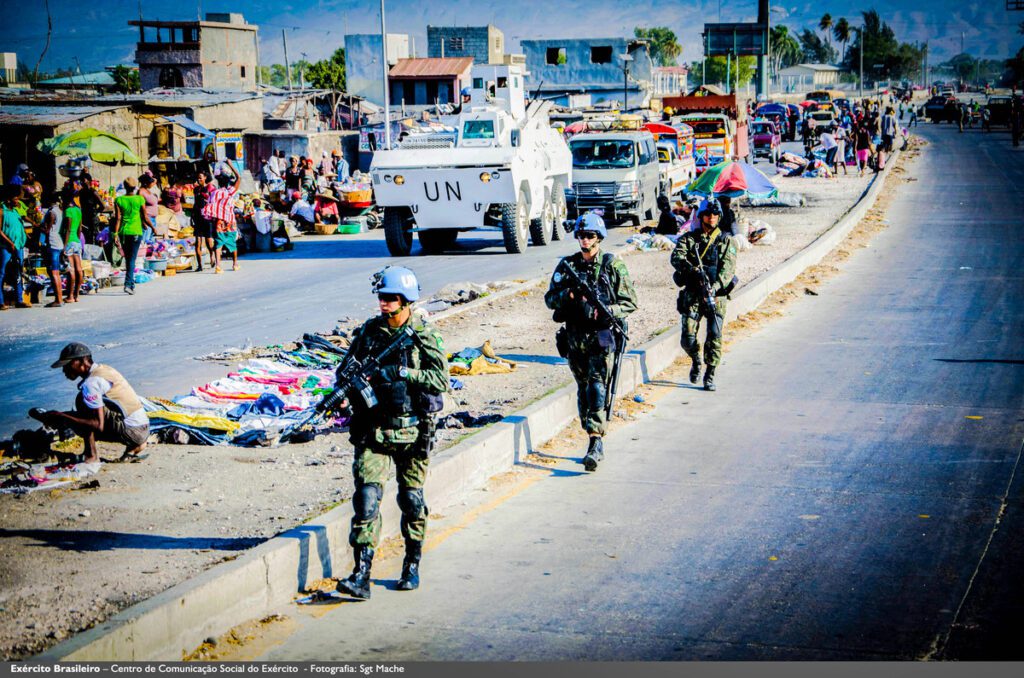
Brazil in peacekeeping missions – The country’s official participation has occurred since the UN Security Council authorized Brazilian military observers to go to the Middle East in 1947. Later, in 1956, Brazil marked its first troop participation in peacekeeping operations in the Arab-Israeli conflict in the Suez Strip. Years later, Brazilian contingents were in Mozambique, Angola, East Timor, Haiti (for thirteen years) and Lebanon (for ten years).
The United Nations Stabilization Mission in Haiti (MINUSTAH), between 2004 and 2017, was the largest deployment of troops abroad since World War II, with the participation of about 37 thousand Navy, Army, and Air Force troops, as well as military police officers, in a demonstration of the Brazilian capacity of projecting power, of military logistics competence, and, above all, of humanity. Another mission that deserves to be highlighted was Brazil’s presence in the Maritime Task Force of the United Nations Interim Force in Lebanon (FTM-UNIFIL), between 2010 and 2021.
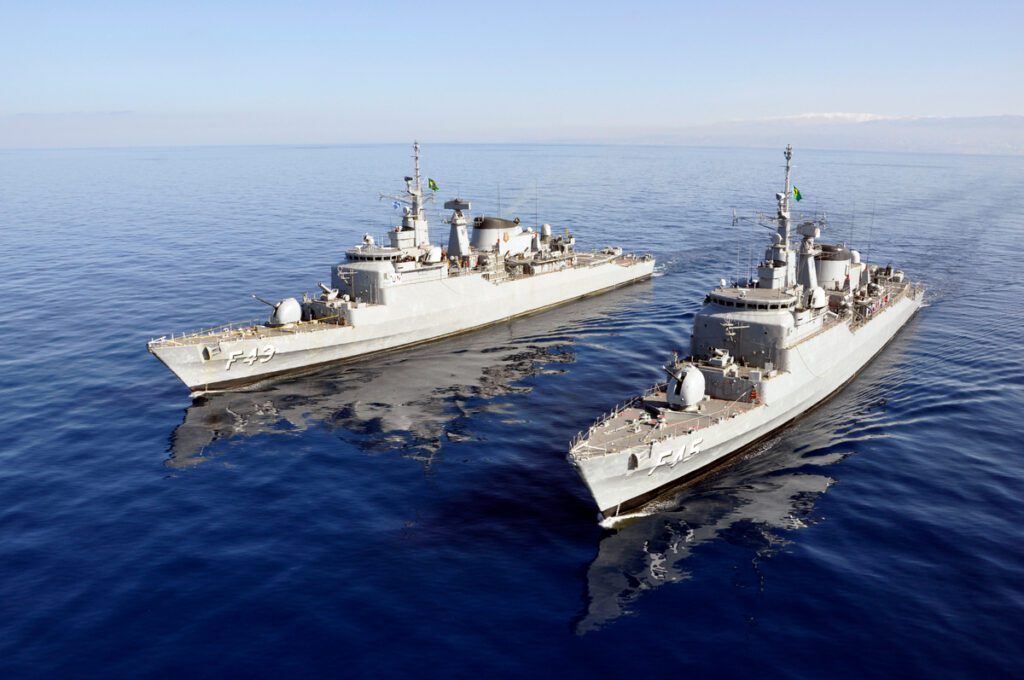
The mission included the continuous participation of ships, aircraft, and military personnel from the Brazilian Navy and from other nations, with the main purpose of contributing to prevent the entry of illegal weapons into Lebanese territory by sea.
Women in peace operations – For two consecutive years, in 2019 and 2020, Brazilian blue helmets were winners of the “UN Military Defender of Gender Equality” award, for their work in the Central African Republic.
